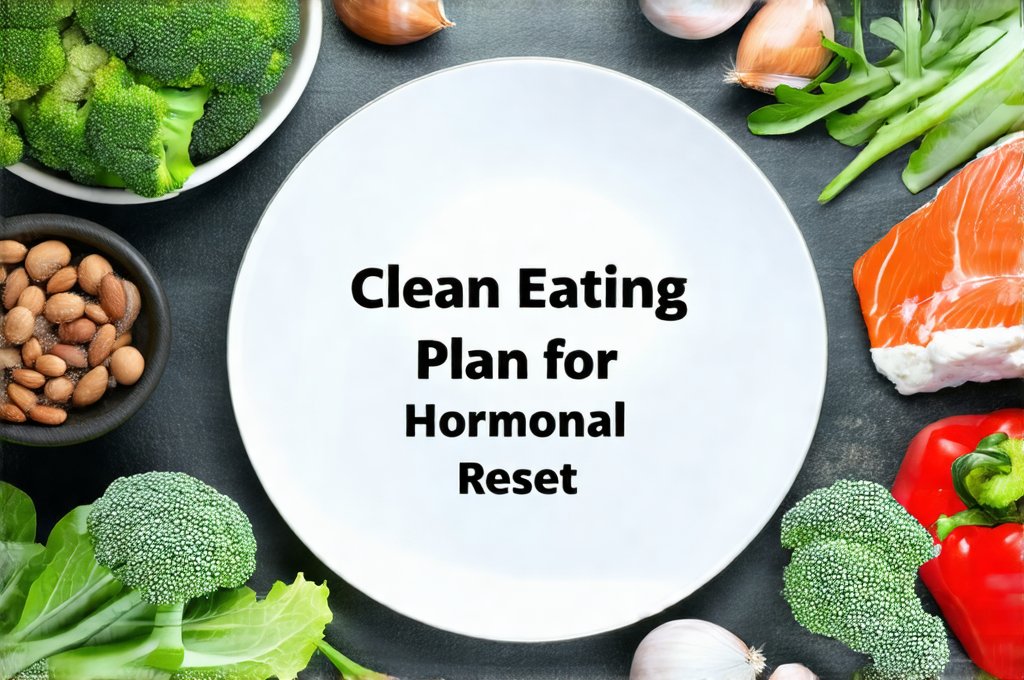Introduction
Hormonal imbalances are increasingly common in today’s world, impacting everything from energy levels and mood to weight management and reproductive health. Many factors contribute to this imbalance, including stress, poor diet, lack of sleep, environmental toxins, and a generally fast-paced lifestyle. While addressing these underlying causes is crucial for long-term well-being, a targeted clean eating plan can serve as a powerful first step toward hormonal reset, helping to restore balance and alleviate disruptive symptoms. It’s about nourishing your body with whole, unprocessed foods that support optimal hormonal function rather than triggering inflammation or disrupting delicate systems. This isn’t a restrictive diet; it’s an empowering shift towards food as medicine.
The idea behind a clean eating plan for hormonal reset isn’t to eliminate entire food groups unnecessarily but to prioritize nutrient density and minimize substances known to disrupt endocrine function. We often unknowingly consume foods laden with hidden sugars, artificial additives, and compounds that mimic hormones (xenoestrogens), all of which can contribute to imbalances. By focusing on real, whole foods – fruits, vegetables, lean proteins, healthy fats, and complex carbohydrates – we provide the building blocks for hormone production and regulation. This approach emphasizes consistent nourishment over quick fixes, aiming for sustainable lifestyle changes rather than fleeting dietary trends.
The Foundation: Building Blocks of a Hormonal Reset Diet
A clean eating plan focused on hormonal balance centers around removing common disruptors and incorporating foods that actively support endocrine function. This isn’t about deprivation; it’s about mindful choices. It begins with understanding which food groups are most beneficial – and those to limit or avoid. Prioritizing whole, unprocessed foods is paramount. Think of it as adding in nourishment rather than simply taking things away. This positive approach makes the process more sustainable and enjoyable.
The core principles include: – Eliminating processed foods, refined sugars, and artificial sweeteners – Focusing on organic options whenever possible to minimize exposure to pesticides and herbicides – Incorporating healthy fats from sources like avocados, nuts, seeds, and olive oil – these are crucial for hormone production – Choosing lean protein sources such as fish, poultry, beans, and lentils – Prioritizing fiber-rich carbohydrates like sweet potatoes, quinoa, and brown rice. These help regulate blood sugar levels, which directly impacts hormonal balance.
Hydration is also key; aim to drink plenty of water throughout the day. Chronic dehydration can exacerbate stress hormones and disrupt overall bodily functions. Finally, mindful eating practices – paying attention to hunger cues, savoring your meals, and avoiding distractions – are essential for optimal digestion and nutrient absorption, further supporting hormonal health. Remember that consistency is more important than perfection; small, sustainable changes over time yield the greatest results.
Supporting Liver Detoxification
The liver plays a vital role in hormone metabolism and detoxification. A burdened liver can’t efficiently process hormones, leading to imbalances. Therefore, supporting its function is crucial for any hormonal reset plan. This doesn’t mean undergoing drastic detoxes; rather, it involves incorporating foods that promote healthy liver function.
- Cruciferous vegetables like broccoli, cauliflower, and kale contain compounds that aid in detoxification pathways. – Foods rich in antioxidants, such as berries and green tea, protect the liver from damage caused by free radicals. – Including a small amount of bitter greens (arugula, dandelion greens) can stimulate bile production, aiding in digestion and elimination of toxins.
Furthermore, limiting alcohol consumption and exposure to environmental toxins is essential. Consider investing in a water filter and choosing natural cleaning products to reduce your overall toxic load. Supporting the liver isn’t about aggressive cleansing; it’s about providing consistent nourishment and minimizing stressors that hinder its function. It’s also worth noting that adequate fiber intake supports healthy elimination, reducing the burden on the liver.
Balancing Blood Sugar Levels
Fluctuations in blood sugar levels can significantly impact hormonal balance, particularly cortisol (the stress hormone) and insulin. Frequent spikes and crashes lead to inflammation and disrupt endocrine signaling. A clean eating plan directly addresses this by prioritizing foods that promote stable blood sugar.
- Complex carbohydrates like sweet potatoes and quinoa are digested slowly, providing sustained energy without causing rapid spikes in glucose levels. – Pairing carbohydrates with protein and healthy fats further slows down digestion and prevents crashes. For example, having apple slices with almond butter is a better choice than eating an apple alone. – Avoid refined sugars and processed foods, which cause rapid blood sugar fluctuations.
Regular meal timing is also important; aim to eat consistent meals throughout the day rather than skipping breakfast or going long periods without food. This helps regulate cortisol levels and prevents overeating later on. Focusing on whole, unprocessed foods naturally supports stable blood sugar and reduces the risk of hormonal imbalances associated with insulin resistance.
Incorporating Hormone-Supporting Foods
Certain foods contain specific nutrients that directly support hormone production and regulation. These aren’t “superfoods” in the hyped sense but rather nutrient-dense choices that contribute to overall endocrine health. For example, healthy fats are essential for building hormones like estrogen and testosterone. Avocados, nuts, seeds, and olive oil provide these crucial building blocks.
- Foods rich in magnesium (dark leafy greens, avocados, dark chocolate) can help regulate cortisol levels and reduce stress. – Fiber-rich foods support healthy gut bacteria, which plays a role in hormone metabolism. – Including sources of selenium (Brazil nuts, tuna) supports thyroid function, essential for regulating metabolism and energy levels.
It’s important to remember that food is just one piece of the puzzle. Stress management techniques, adequate sleep, and regular exercise are equally crucial for hormonal balance. However, a clean eating plan provides the foundation for optimal endocrine function and can significantly improve overall well-being. This holistic approach – combining nutrition with lifestyle factors – yields the most sustainable results.




